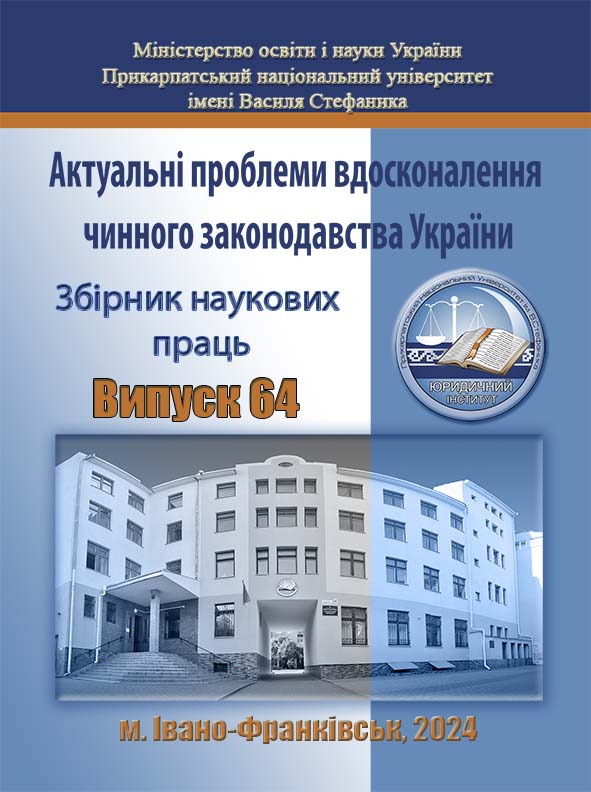Agreement on the payment of membership fees in public associations: civil law aspect
DOI:
https://doi.org/10.15330/apiclu.64.161-171Keywords:
public association, membership fees, contract, joining contract, civil liabilityAbstract
The article is devoted to the study of the legal nature of the agreement on the payment of membership fees in public associations. It is emphasized that the legal structure of the agreement on the payment of membership fees in a public association has the right to exist, because the relevant agreements are already concluded in practice.
The article analyzes the doctrinal positions of scientists regarding the determination of the legal nature of the contract. Researchers of this issue refer to the agreement on the payment of membership contracts in a public association as an accession agreement. Such a conclusion was made based on the considerations that a person intending to become a member of an association agrees to the proposed conditions in general and does not determine the terms of the corresponding contract. Based on the criterion of the rights and freedoms of the parties, the author supports the position of the mutual nature of the contract under study. The two-sidedness of the contract is due to the existence of rights and obligations of the member of the public association and the public association itself. Therefore, in relation to a member of a public association, this is: the obligation to pay a membership fee and the right to participate in the association, and in relation to a public association, this is: the obligation to accept a certain person as a member of the association and the right to demand the payment of the corresponding contributions .
The subject of scientific study in the article is also civil liability for non-payment of membership fees. It is emphasized that when determining the degree of civil liability for non-payment of membership fees, it is necessary to refer to the general principles of its determination in accordance with the provisions of the The Civil Code of Ukraine. The author made a reservation about the possibility of collecting contributions in a compulsory manner only in the absence of binding legal relations between the parties, that is, the conclusion of a corresponding contract.
The judicial practice in relation to the issues raised in the article is analyzed. Based on the relevant analysis, it was concluded that judicial practice is not characterized by unity in law enforcement. At the same time, the judicial practice of recent years shows not only the possibility of compulsory collection of contributions, but also the possibility of applying additional liability for non-payment of contributions in the form of a penalty. This is due to the fact that if there are contractual legal relations, then the terms of the contract must be fulfilled, and in the event of their non-fulfillment, there will be negative consequences associated with the forced collection of membership fees.


